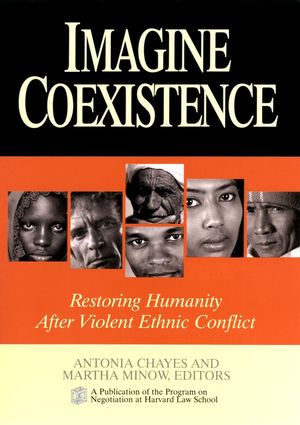Imagine Coexistence: Restoring Humanity After Violent Ethnic ConflictISBN: 978-0-7879-6577-8
Hardcover
384 pages
April 2003, Jossey-Bass
 This is a Print-on-Demand title. It will be printed specifically to fill your order. Please allow an additional 10-15 days delivery time. The book is not returnable.
|
||||||
In the last decade, the world has witnessed a dramatic increase in
the number of ethnic conflicts worldwide. But what do nations that
have been in bloody conflicts do when the shooting stops? How can
people who have been engaged in terrorist genocidal wars ever
return to a situation of peaceful coexistence?
Imagine Coexistence is a groundbreaking program that grew from the joint initiative and conference sponsored by the United Nations High Commissioner for Refugees, Harvard University, and the Fletcher School of Law and Diplomacy at Tufts University. Imagine Coexistence seeks to enhance prospects for coexistence and break the destructive cycles of intergroup violence. This important book, Imagine Coexistence— which was named for the program— offers a unique perspective grounded in research and outlines the invaluable lessons learned from numerous war-torn societies. The authors address the common problems that the people of these devastated nations face when the conflict subsides and examine how initiatives in education, the arts, sports, and economic development can offer refugees, returnees, and other survivors of group conflict reasons to work together and can create a base for relating constructively over time.
Imagine Coexistence is a groundbreaking program that grew from the joint initiative and conference sponsored by the United Nations High Commissioner for Refugees, Harvard University, and the Fletcher School of Law and Diplomacy at Tufts University. Imagine Coexistence seeks to enhance prospects for coexistence and break the destructive cycles of intergroup violence. This important book, Imagine Coexistence— which was named for the program— offers a unique perspective grounded in research and outlines the invaluable lessons learned from numerous war-torn societies. The authors address the common problems that the people of these devastated nations face when the conflict subsides and examine how initiatives in education, the arts, sports, and economic development can offer refugees, returnees, and other survivors of group conflict reasons to work together and can create a base for relating constructively over time.



